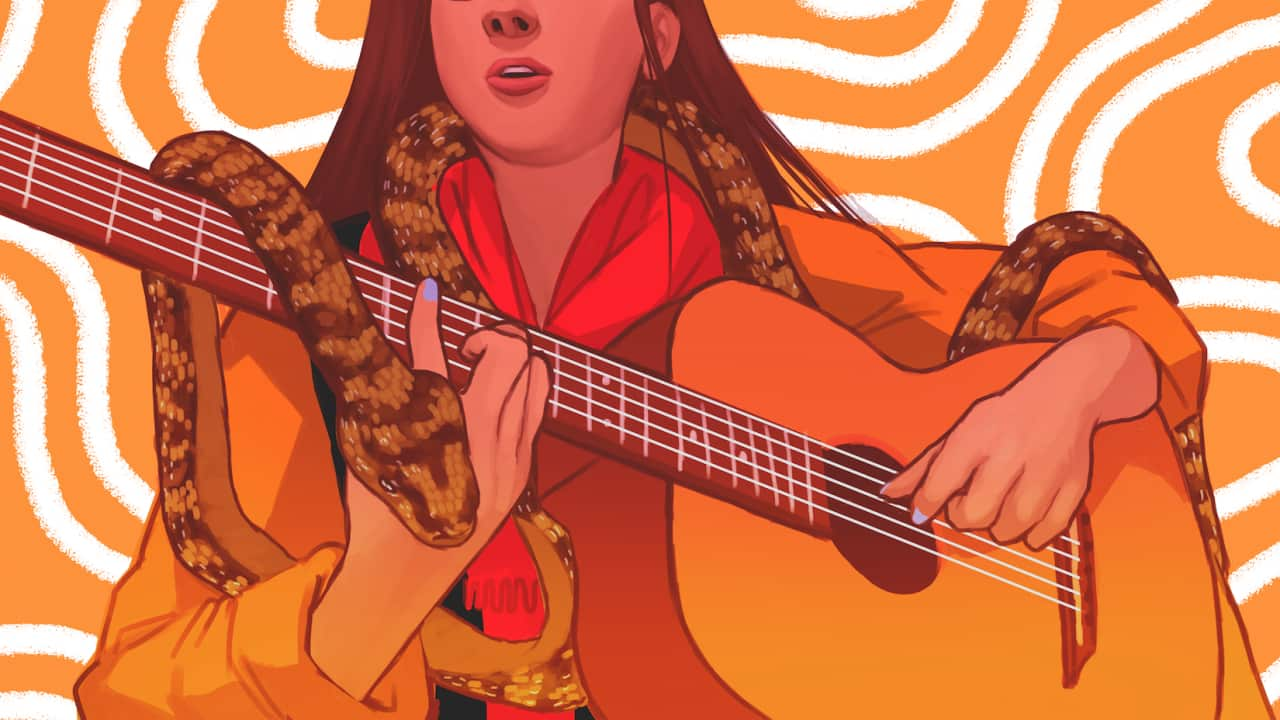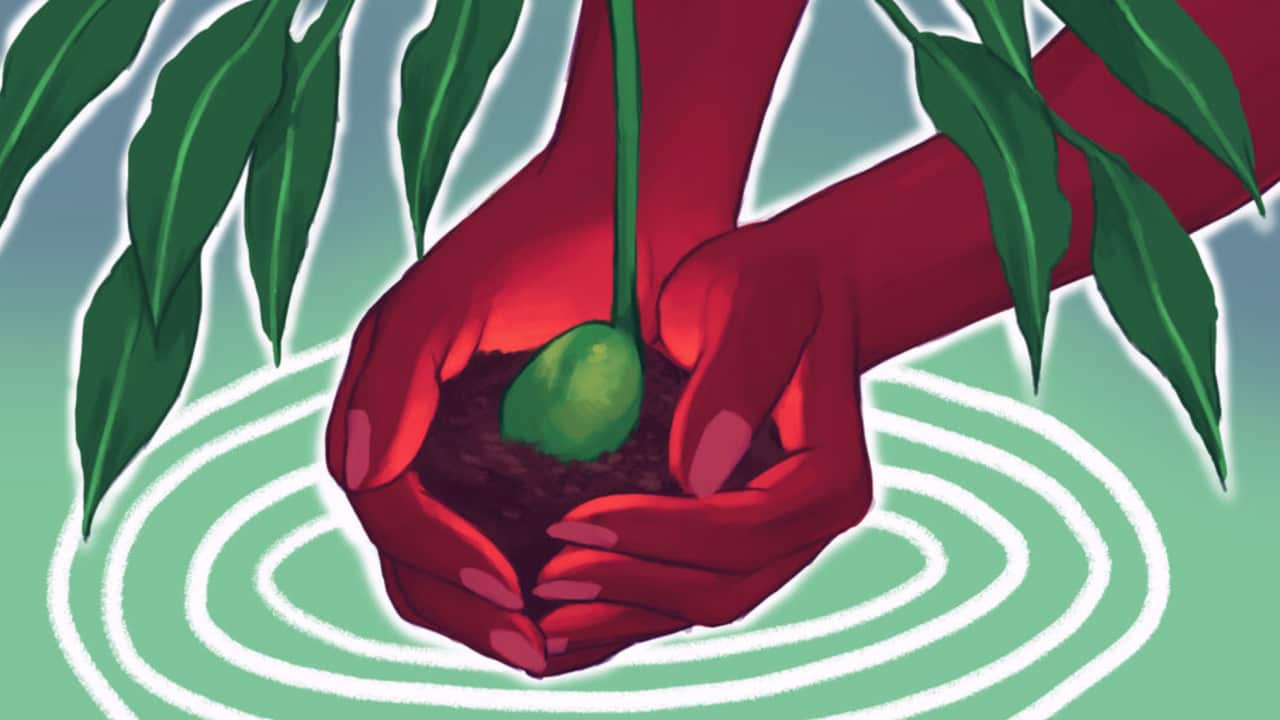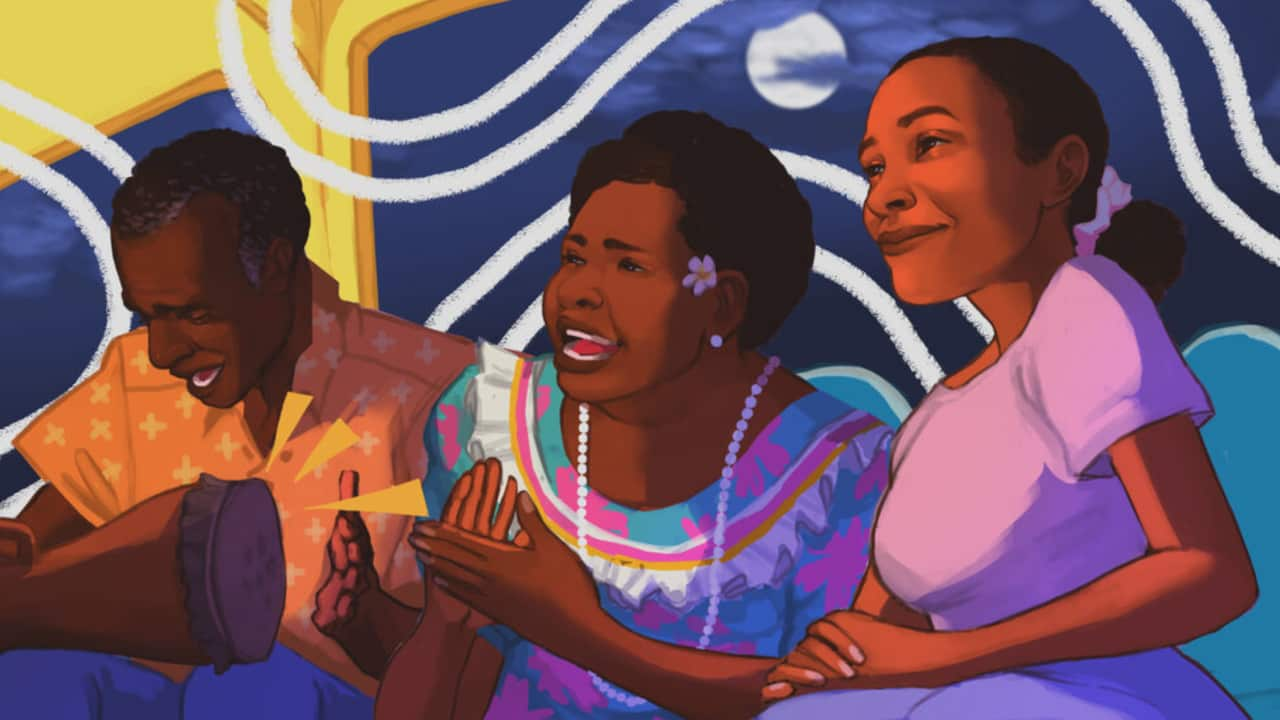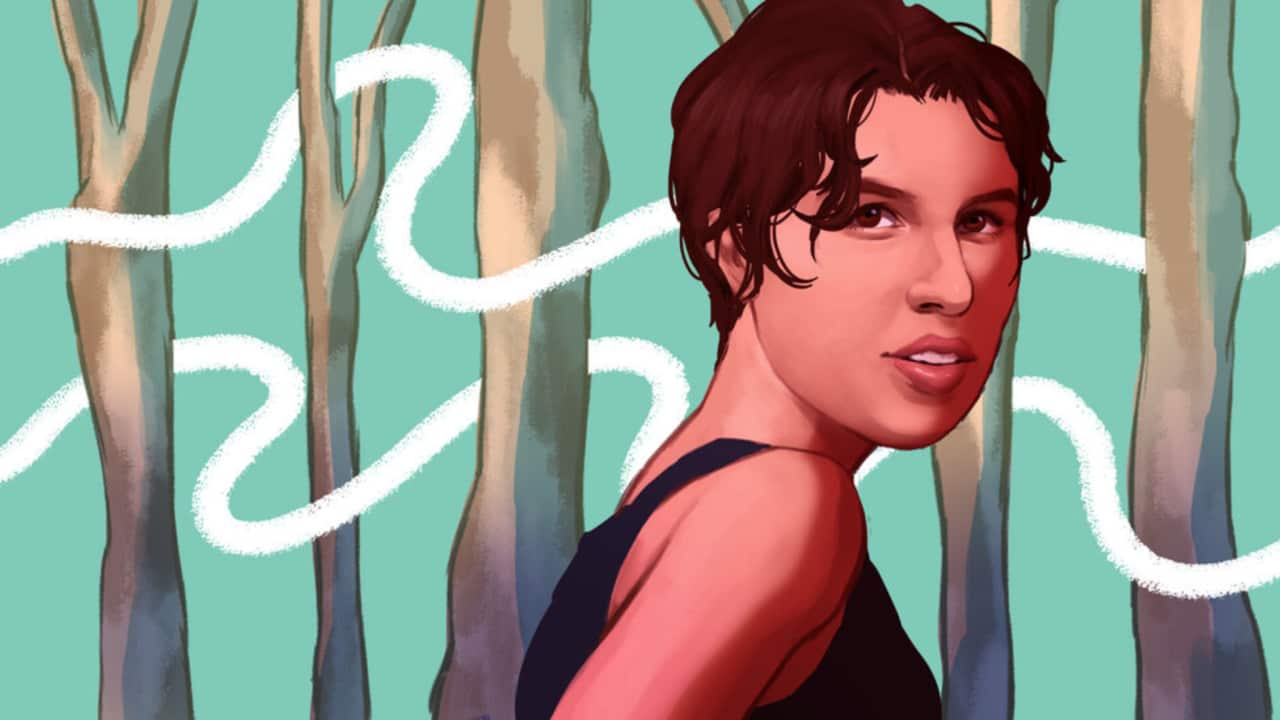This story is edited by Mununjali author Ellen van Neerven for SBS Voices and is part of a NAIDOC Week essay series inspired by the 2021 theme 'Heal Country’, elevating the voices of Aboriginal and Torres Strait Islander writers.
I was thirteen when I first started making music. I got my first guitar for my birthday and then started writing music after I had learnt a few chords.
When I started playing guitar, I didn't really want to learn covers. I wanted to write my own music. Maybe it was because I didn't see music as just a hobby. I wanted to be an artist and I wanted my own identity as a songwriter.
I use my music as a platform to share my knowledge and things I am passionate about such as my language and culture.
When I started playing guitar, I didn't really want to learn covers. I wanted to write my own music.
My dad’s side of the family is Nukunu from the southern Flinders Ranges. Water is at the heart of Nukunu culture and the river people along the Murray Darling. Wapma, the large carpet python and Wildu, the eagle hawk, are really important animals in Nukunu culture.
I have written two songs in Nukunu. One of them is on Triple J, it’s called ‘Ngana Nyunyi’, and we filmed a music video on country in the Flinders Rangers.
The song started as a game that my dad would use to help my little sister and I learn Nukunu language while we were all in the car. Dad would ask, ‘Ngana Nyunyi/ what’s that?’ and we’d reply ‘Nyunyi kulpi, yirti, thartu/ that’s a cloud, bird, hill etc’.
I am a snake person, I come from the snake like all other things in Nukunu country. When I sing ‘Wapma yarta, Wapma nhayirringa’ I am singing about Wapma being the land, Wapma being in the sky looking over us, and Wapma being the rain, creeks, waterholes and aquifers. Wapma is my god, looking over me all the time, and Wildu is the king of the skies, known for his wisdom and looking over everything.
When I sing ‘Wapma yarta, Wapma nhayirringa’ I am singing about Wapma being the land, Wapma being in the sky looking over us, and Wapma being the rain, creeks, waterholes and aquifers.
‘Ngana Nyunyi’ communicates some of the key things that connect us to country, our spiritual beliefs and our reliance upon and protection of country.
Music is a great way for others to learn a language. I want my culture to live on and I don't want it to die out. I enjoy incorporating my language into my songs because I feel it is important for me to share my culture with others. Writing and singing in language helps me learn language and strengthens my connection to culture. It also helps others that don't know a lot about Aboriginal culture.
Sometimes I get my inspiration from different places. My songs are not all necessarily directly about my identity. One song I wrote called ‘Sketches’, is about my experience of going to Spain and learning about Pablo Picasso’s artwork and the type of person he was. I like to write about political or meaningful things as much as possible but sometimes you just need to write a simple song as well.
I would describe my sound as indie pop electro. Some songs are slow and chill. Others are more dance electronic type songs. I can’t say I have completely found my sound yet, I am exploring different genres and pushing my music into different directions.
I graduated high school last year and I’m currently in my first year at the Centre for Aboriginal Studies in Music (CASM) in Adelaide. I am loving everything that I’m learning. I’m learning about songwriting and how to read music and production. I love the art of songwriting. When I go to write songs, I usually start with lyrics but this isn't always the case. I start off writing ideas down in my phone sometimes and then will turn them into a song, adding instruments to them after. Sometimes I will be playing chords on piano and try to find lyrics to match the sounds. I find it helpful to try different songwriting processes, not just one.
I love the art of songwriting. When I go to write songs, I usually start with lyrics but this isn't always the case. I start off writing ideas down in my phone sometimes and then will turn them into a song, adding instruments to them after. Sometimes I will be playing chords on piano and try to find lyrics to match the sounds. I find it helpful to try different songwriting processes, not just one.

Music is a great way for others to learn a language. I want my culture to live on and I don't want it to die out. Source: Supplied
To me, this year’s NAIDOC theme, ‘Heal Country’ means we should all do our best to protect country. It’s time to heal and to look after this land instead of destroying it. I don't think we do our best at respecting the land and there are things we can all do to ensure we do look after it for future generations.
NAIDOC for me is always a special time. I always perform during the week, and I’m looking forward to performing new songs. NAIDOC is a great opportunity for everyone to come together and learn more about culture.
Tilly Tjala Thomas is a singer/songwriter from the Fleurieu Peninsula and writes music to showcase her pride and appreciation for her Nukunu heritage.
The illustration for this piece is by Tori-Jay Mordey, an established Indigenous Australian illustrator and artist based in Brisbane. Growing up she openly shared both her Torres Strait Islander and English heritage, which is often reflected in her contemporary Indigenous art practice - producing work based around her family and siblings as a way of understanding herself, her appearance and racial identity.
National NAIDOC Week (4 – 11 July 2021) celebrates the history, cultures and achievements of Aboriginal and Torres Strait Islander peoples. Join SBS and NITV for a full slate of , and follow NITV on and to be part of the conversation. For more information about NAIDOC Week or this year’s theme, head to the .
MORE FROM SBS VOICES' NAIDOC WEEK COLLECTION

Our Countries cannot heal until their names are given back





